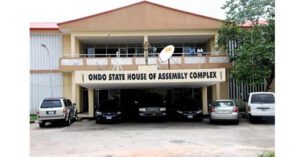
Effective persuasion and the role of case studies
By Goke Ilesanmi
It is noteworthy that the ability to communicate persuasively is a skill that can be used in all aspects of our personal or business life. In short, it is said that the difference between an impotent conversationalist and the motivating communicator is the ability to persuade people to participate in win-win relationships. The world would be a very different place without those few individuals who have mastered persuasion skills and used them so effectively throughout generations.
Being able to successfully persuade others to align with your view(s)is a skill that can be developed through training and practice. Experience shows that many people approach persuasion in a way that makes it difficult for them to achieve success.
The good news is that there are many strategies you can adopt to achieve effective persuasion. One of these is to establish your credibility. In the workplace, for instance, credibility comes from expertise and relationships. People are taken as experts if they have a history of sound judgement or have proved themselves well informed about their proposals. They must have demonstrated over time that they work in the best interests of others.
Case studies
Case studies are one of the non-material instruments deploy to achieve effective persuasion. Case studies are histories of business initiatives. They are like articles, but they put readers into the shoes of a person making a difficult decision. Other professions also use case studies. For instance, you must have probably heard of medical case studies, etc. Here, medical students get some facts about a patient and perhaps some background or context, and then must diagnose the patient’s condition or disease.
Research shows that business case studies are popular at many university business schools. In some senses, the case study is the next best thing to being involved in a real case. Now, how is this relevant for you? Well, if you have to persuade others to adopt your point of view, or buy your products, or vote for you, then you might find a case study useful.
Example
In fact, you may be doing something like that already. Whenever you tell a story that is designed to make a certain point, you are using a form of case study. In life insurance sales, for example, it is established that emotion, rather than logic, sells policies. That is why people in the business have a lot of stories about people who did or did not have protection when they died.
The moral, of course, is that you should not only have life insurance, but you should have the right kind, and in the right amount. Now, if you sell life insurance, you will quickly find that no one listens when you explain the logic, but they will listen – and act – if you have your case studies (your anecdotes). So, having gone through all that, is a case study just a fancy name for an anecdote or story? Yes, to a certain extent it is.
More elaborate story
But, when you think of a case study, think of it as a more elaborate and more logically- constructed story. And, it is usually a real-life story. To illustrate the idea further, let us go through the steps involved in creating one. Your case study starts by identifying a person and an organisation, along with relevant information that provides context to the issue addressed in the case.
It also introduces the decision or dilemma. In many cases, the writer sets out two or more possible options. One of those options may be to do nothing, to maintain the status quo. Another option may demand significant changes, and yet a third option would require more modest changes.
Assertions
Experts such as Robert Abbott, author of “A Manager’s Guide to Newsletters: Communicating for Results”, sayhowever you set the options, they should offer distinct choices to the reader and should not allow a muddling-through solution that involves easy compromises. Now that you have set out the choices, provide the basic facts and opinions the reader will need to make a logical choice.
Like the writer of a mystery novel, you need to provide all the critical information without giving away the solution. That is, you employ the literary narrative technique of suspense and denouement or disclosure to arouse and sustain readers’ reading interest. And like a mystery writer, you may introduce a few false trails. As you develop the case study, keep in mind that you are trying to convey that the person or company in the case had to make a difficult decision. And the more the reader feels that difficulty, the more effective the case.
Last words
Finally, provide an outcome if possible. Let the reader know which option the person or company chose, and how that decision worked out. After all, you have been telling a story, and your audience will want to know how it ended. Ideally, you would not give the reader access to the outcome until after he or she makes that decision. You can create your point more powerfully by creating a case study, a specially constructed story that puts the reader or listener in the shoes of a decision maker.
PS: For those making inquiries about our CV/Profile Writing and Speech Writing Services; Political Persuasion and Presentation Course; General Public Speaking and Business Presentation Course; Professional Writing Course, etc., please visit the website indicated on this page for details.
GOKE ILESANMI (FIIM, FIMC, CMC), CEO of Gokmar Communication Consulting, is an International Platinum Columnist, Professional Public Speaker, Career Mgt Coach and Certified Mgt Consultant. He is also a Book Reviewer, Biographer and Editorial Consultant. Tel: 08056030424; 08055068773; 08187499425
Email: [email protected]
Website: www.gokeilesanmi.com.ng



